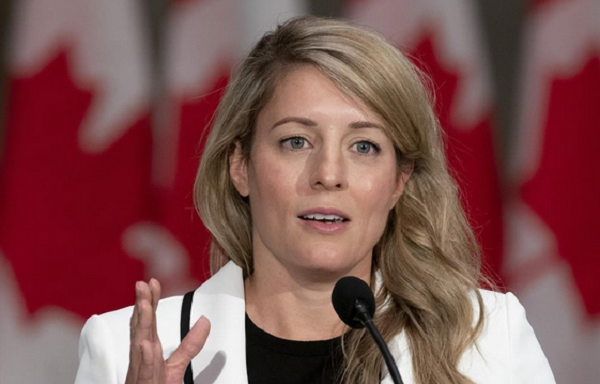Indigenous companies record list surge following Ottawa’s adoption of procurement target
The number of businesses eligible for a federal program that prioritizes Indigenous companies when awarding contracts jumped more than 40 per cent over the past year, a rapid increase to a program that some community leaders say has overly broad criteria and is vulnerable to abuse.
More than 800 new registrants enrolled in the Indigenous Business Directory, a database of companies eligible to participate in Ottawa’s procurement strategy for expanding the Indigenous economy. That jump, from 1,900 to 2,700 companies as of April, coincided with a federal plan, announced three years ago, that by this year a minimum of 5 per cent of the total value of federal contracts should be awarded to Indigenous businesses.
The value of government contracts awarded under the program, known as the Procurement Strategy for Indigenous Business, has risen to $862-million in the 2022-23 fiscal year, up from $170-million five years prior.
Karine Vetvutanapibul, a spokesperson for Indigenous Services Canada, said the growth in new registrants in the directory is partly because of efforts by Ottawa and Indigenous organizations to promote the existence of the strategy and its benefits.
The Liberal government is pledging to review its approach to such contracting incentives amid concerns from some Indigenous groups. In reports and interviews, they have outlined a series of issues related to a lack of oversight and scrutiny when it comes to which companies are eligible and whether the strategy’s requirements to employ Indigenous workers are actually enforced.
The spending and registrations are increasing at a time when parliamentarians are taking a more critical look at the program, which was used to hire some of the contractors who worked on ArriveCan, the COVID-era app for international travellers that faced criticism over its ballooning cost.
One of the ArriveCan contractors that has been suspended from federal work, Dalian Enterprises, identifies as an “aboriginally owned” company and has frequently availed itself of the program. Dalian, which provides technology staffing and other services, regularly partners with a larger non-Indigenous company, Coradix Technology Consulting, in joint ventures to win contracts through the PSIB. The two companies share an Ottawa office.
David Yeo, Dalian’s founder, has said his company has only two employees. Mr. Yeo is a great-grandson of David Franklin, a former chief of Alderville First Nation, a community about 120 kilometres northeast of Toronto.
The Globe reported this week that Indigenous Services Canada, which is responsible for oversight of the program, has, since 2016, launched four after-the-fact audits of companies that benefit from the PSIB. Statistics prior to that were not immediately available.
Indigenous organizations have said that while joint ventures between Indigenous and non-Indigenous companies can help smaller Indigenous companies, they also merit closer attention because the arrangements can be abused through the use of shell companies that take away opportunities from legitimate Indigenous companies.
To participate in the PSIB, businesses must be registered on the Indigenous Business Directory, which is maintained by the federal government. Ottawa sets the eligibility terms for companies seeking to join the directory, terms that include Indian registration, and citizenship or membership in specific Indigenous organizations.
One option is being a member of an affiliate of the Congress of Aboriginal Peoples. Affiliates of CAP are generally provincially based, such as the Ontario Coalition of Indigenous Peoples. The CAP says it represents the interests of Métis, status and non-status Indians, and southern Inuit – or other recognized Indigenous organizations in Canada.
But the head of Canada’s national Inuit organization says Ottawa should impose more stringent restrictions and that criteria should be limited to groups that are rights holders under the Constitution.
Natan Obed, president of the Inuit Tapiriit Kanatami, says the current standards for the directory are “far too inclusive.”
“We are now living in an era where there are tremendous opportunities to be had for qualifying as a First Nations, Inuit and Métis business,” Mr. Obed told The Globe and Mail in an interview. “There are many actors in this country who want to take advantage of that.”
When speaking about the criteria being too broad, Mr. Obed pointed to inclusion of members of the Congress of Aboriginal Peoples and other Indigenous organizations.
The federal government’s requirements are the subject of debate among Indigenous organizations.
Indigenous Services Minister Patty Hajdu said earlier this year that defining who is Indigenous is “really complicated,” and said the government is considering transferring control of the directory to an arm’s length Indigenous organization.
There is a push from five national Indigenous economic organizations to take over the stewardship of the directory through an arm’s-length First Nations Procurement Organization. The project was announced in February with the support of the Assembly of First Nations.
Shannin Metatawabin, the chief executive officer of the National Aboriginal Capital Corporations Association, which is one of the five organizations, said it is better placed, in his view, to assess indigeneity and should be supported by the federal government.
“We can ensure that the citizenship is clear,” he said.
Mr. Metatawabin said the government’s database includes people who are not Indigenous.
“There’s organizations in Canada that accept self-identification as a mechanism of building membership, and in turn the government of Canada accepts those organizations on their business registry,” he said. “Right now, the whole system is flawed.”
Jinnifer Kozelj, a spokesperson for Ms. Hajdu, said the government is reforming the procurement strategy by placing Indigenous voices at the forefront of the process.
“This is important work and it needs to be led by Indigenous people themselves. That means governments need to get out of the business of deciding who’s Indigenous and who’s not. This colonial mindset has hurt Indigenous People for generations,” she said. “Our goal is to support Indigenous organizations as they lead a robust and reliable strategy that is fair to all.”
Elmer St. Pierre, the national chief of the Congress of Aboriginal Peoples, pushed back at the criticism that its members should not be eligible for the Indigenous Business Directory.
Over the years, the Congress has at times been excluded from federal government meetings with Indigenous organizations. In reports to Parliament, the Congress has said its members include Section 35 rights holders, as well as non-status people who have been denied their Section 35 rights as a result of colonial policies such as the Indian Act.
Mr. St. Pierre his organization believes the directory is a “vital tool to help Indigenous businesses grow and thrive along with our communities and people.” He also said that Mr. Obed’s organization “does not have the liberty or authority to decide which Indigenous businesses are included.”
This article was first reported by The Globe and Mail












